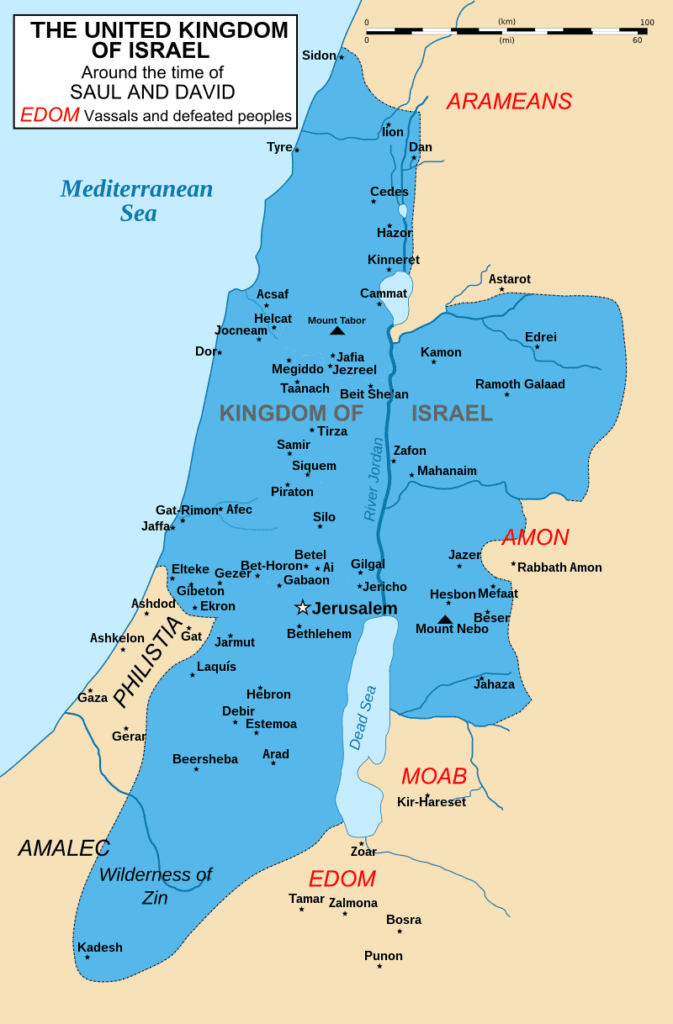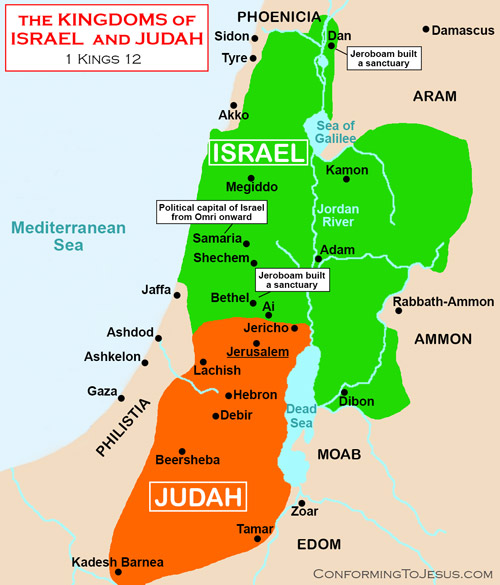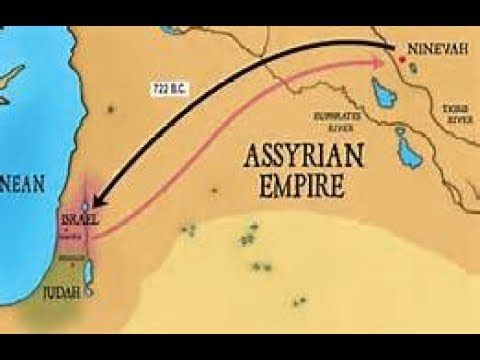This weeks readings tend to speak of past prophets and Widows in a town called Zarephath. A man named Naaman being healed. We see Jesus speaking about prophets not being accepted in their native place and next thing you know he is being jeered and booed and is roughly shoved out of town. What exactly is going on? The secret is knowing who is who. Along with cultural prejudices of the time.
I will let you read through the readings and we can start to unpack these readings a bit.
Here is the link to the readings for Monday : https://bible.usccb.org/bible/readings/031323.cfm

A bit of history
First a bit of history. This by need will be fairly quick…. During the reign of King David all of Twelve Israelite Tribes united under him. He was a man after God’s own heart and was favored with the grace of God. He was famous throughout the land for his military prowess and his defeat of King Saul, the Philistines etc. Each of the twelve tribes submitted to him and he even was able to take control of Jerusalem.
Now during the reign and David and Solomon Israel was united… the entire area united under those kings. However, Solomon toward the end appears to have gone too far with his taxes and building projects, or so the people thought. With his death around the year 925 BC, the hope was that the slavery to taxes and building would lessen or even go away completely.
The Divided Kingdom

To put the next part in a nutshell, Solomon’s son Rehoboam heard the cries, and instead of heeding the cries, decided he was going to show them who was boss… perhaps not the best decision at the time. Solomon’s wisdom had vanished it appears.
The so-called Northern areas (The 10 tribes besides Benjamin and Judea in green) seceded and we hear them referred to as Israel. They made a man called Jeroboam their king who ruled for 22 years. This area also was known as Samaria the capital city.
The remaining two tribes Benjamin and Judah became known as Judah. This area was ruled by Rehoboam. He reigned for 17 years
Obviously wars and other bad blood ensued for the next 60 years… then a period of de-tent and eventually an alliance, primarily to defend against their common foe which was centered in Damascus.
Fate of the Israel and Judah

Let’s shoot ahead to about 725 BC where Assyrian invaded and conquered Northern Israel and took captives back to their area. We hear about the Ninevah area most notably in the story of Jonah.
A bit later around 598 BC the Babylonians captured and destroyed Judea taking many of their inhabitant’s prisoner back to Babylon.
On the Way Home
So all 12 tribes have been conquered, their areas destroyed. Both culturally and religiously But both groups remembered their heritage as the true religion of the true God.
Eventually the Northern group was freed and returned to the northerly areas. They blended in with the Non-Jewish people who were there. These Samaritans claimed to be the 10 “Lost tribes” of Israel. They set up a Temple at Mount Gerizim (Near Shechem). Northern Israel proclaimed it was the original Temple location chosen by God. The brought their own form of the Pentateuch along with the their own Israeli laws…
When the Southern tribes were freed by Babylon… they as well claimed to be the true Jewish religion… They had Jerusalem (what was left of it). They recognized the northern group blended into the Non Jewish people (i.e. intermarried and were no longer purely Jewish). The South therefore determined the North not to be recognized. You can imagine that tempers flared between the two groups… not wanting to have anything to do with the other…
For this particular post… the two groups hate each other. And want nothing to do with each other. Hence, why the surprise and the amazement, fear and hatred that comes up whenever Jesus mentioned the Samaritans.
Zerephath More than just a morsel
Want to learn more about Zarephath? Here is a link to that

Being God, He loved them
The stories of Naaman and Elijah all have to do with the Samaritan areas of the once United Israel. Jesus was very specific in his choice of stories here. He was not too pleased with this man-made split. He pointed out how much the hatred of the Samaritans could work to destroy from within. But His point was to those in Judah to recognize that the Northern Tribes were also tribes. God wants to save all of Israel.
The people of Judah reacted to any thought of God actually working with the hated Samaritans in human form. Centuries of prejudice, bitterness and stigma.
The Woman at the Well
Yet we saw in Sunday’s Gospel (3rd Sunday of Lent) just yesterday that Jesus, as God, brought the savior of the world to all of the children of Israel. We note the set-up of yesterday’s Gospel mentioned that the well of Jacob was there. This alluding to the point where all of Israel was together. The woman at the well recognized who Jesus was and announced it to her world. Just as Elijah brought God to the widow in Zarephath, the woman from Sychar (About 19 miles north of Bethel) announced to her town the Christ.
All of these little known and hard to understand divisions plagued the Middle east… Just as many things divide us today. Be it political party, thoughts on the Church, where people live… Jesus worked to be sure all of Israel heard the saving message. He established a Church to spread His good news to all the corners of the World. Today instead of continuing the feud and human splits of years gone by we are asked to united behind God and to love the other just as God shows us.
I know this went a bit long, but I hope this will help making sense of some of the regions around Jerusalem as well as some of the divisions.
